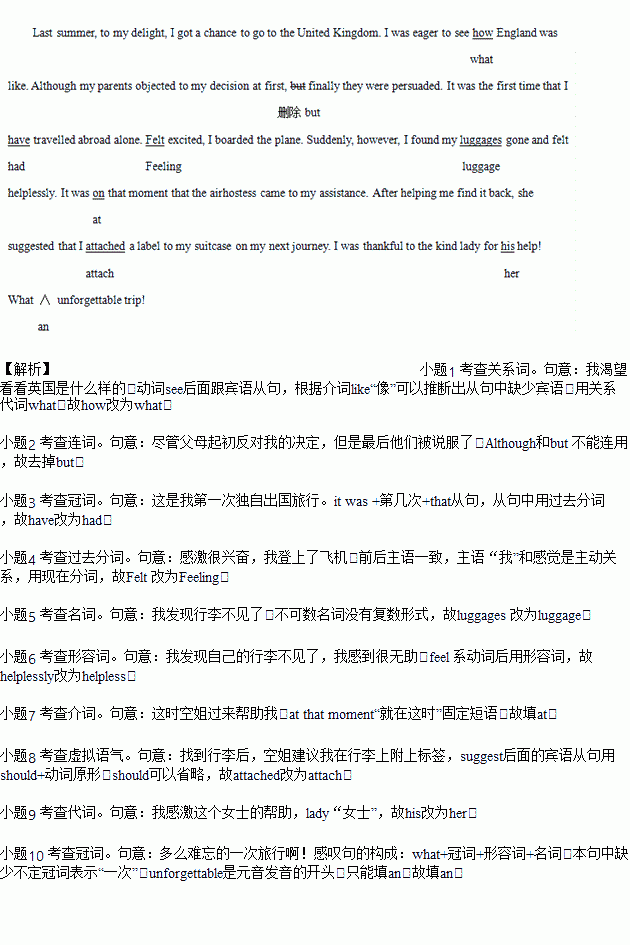题目内容
假定英语课上老师要求同桌之间交换修改作文,请你修改你同桌写的以下作文。文中共有10处语言错误,每句中最多有两处。错误涉及一个单词的增加、删除或修改。
增加:在缺词处加一个漏字符号(∧),并在其下面写出该加的词。
删除:把多余的词用斜线(\)划掉。
修改:在错的词下划一横线,并在该词下面写出修改后的词。
注意:1.每处错误及其修改均仅限一词;2.只允许修改10处,多者(从第11处起)不计分。
Last summer, to my delight, I got a chance to go to the United Kingdom. I was eager to see how England was like. Although my parents objected to my decision at first, but finally they were persuaded. It was the first time that I have travelled abroad alone. Felt excited, I boarded the plane. Suddenly, however, I found my luggages gone and felt helplessly. It was on that moment that the airhostess came to my assistance. After helping me find it back, she suggested that I attached a label to my suitcase on my next journey. I was thankful to the kind lady for his help! What unforgettable trip!

